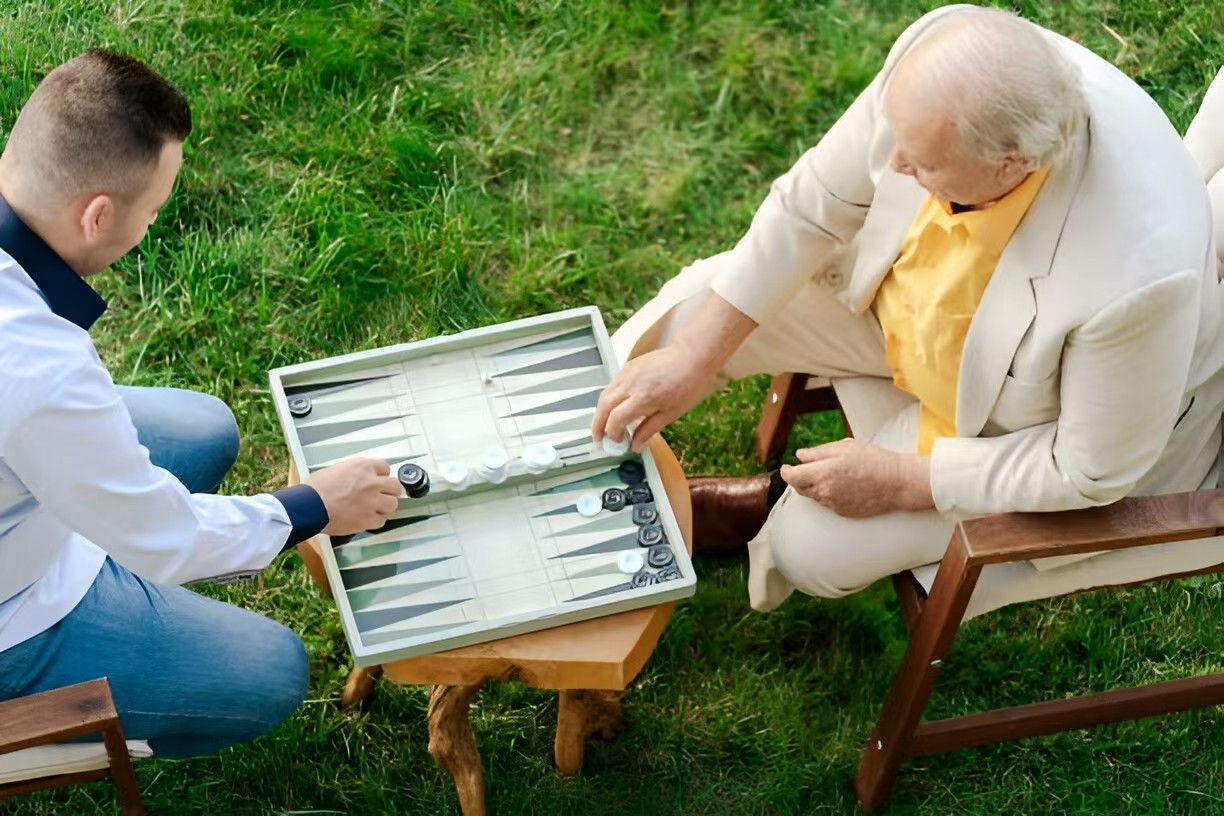
Get A Quote
Is Backgammon Good for the Brain?
Backgammon, one of the oldest known board games, is often associated with leisurely afternoons and social gatherings. However, beyond its entertainment value, there's growing interest in understanding the cognitive benefits of this ancient game. Is backgammon good for the brain? Let's delve into how playing backgammon can positively influence mental faculties and overall brain health.
The Cognitive Demands of Backgammon
Backgammon game requires players to employ a blend of strategy, calculation, and probability assessment. Each move necessitates critical thinking and foresight, akin to playing chess. The player must consider the possible outcomes of their moves and anticipate their opponent's strategy, making backgammon a game of both skill and chance. The strategic depth of backgammon involves:
Strategic Thinking
To succeed in backgammon, players must anticipate their opponent’s moves while planning several steps ahead. This kind of strategic thinking exercises the brain, fostering skills such as foresight, adaptability, and tactical planning. Unlike many board games that rely solely on luck, backgammon requires players to use their intellect to outmaneuver their opponents.
Probability and Risk Assessment
Each turn in backgammon involves rolling two dice, which introduces elements of probability and risk. Players must calculate odds and make decisions based on likely outcomes. This aspect of the game sharpens mathematical thinking and the ability to assess and manage risk, skills that are valuable both in and out of the game.
Memory and Pattern Recognition
Successful backgammon players develop an ability to remember previous games and recognize patterns. This enhances both short-term and long-term memory. Players recall past strategies and outcomes, helping them to make better decisions in future games. Pattern recognition also plays a role in identifying potential moves and predicting the opponent’s strategy.
Enhancing Cognitive Skills
Engaging in games that challenge the brain, like backgammon, has been linked to cognitive improvements. Studies suggest that playing such games can enhance various mental skills. Here are some ways backgammon can be beneficial:
Improves Memory and Cognitive Function
Backgammon requires players to remember the positions of checkers and the outcomes of dice rolls. This constant mental exercise helps in improving both short-term and long-term memory. Regular players often develop an enhanced ability to recall past games and strategies, which can translate into better memory retention in everyday life.
Boosts Problem-Solving Abilities
Every move in backgammon is a problem that needs solving. Deciding whether to block an opponent, move a checker, or bear off requires quick thinking and decision-making skills. This constant problem-solving helps to keep the mind sharp and improves one’s ability to think on their feet.
Enhances Strategic Thinking
Strategic thinking is at the core of backgammon. Players must plan several moves ahead, considering various potential scenarios. This foresight and planning help in developing strategic thinking, which is beneficial in numerous real-life situations, such as business planning and personal goal setting.
Encourages Patience and Discipline
Backgammon teaches patience and the importance of making thoughtful decisions rather than impulsive moves. Players learn to wait for the right opportunity and to avoid taking unnecessary risks. This patience and discipline can be valuable traits in both personal and professional life.
Reduces Stress
Playing backgammon can be a relaxing and enjoyable activity that provides a mental break from daily stresses. Engaging in such a mentally stimulating yet enjoyable game can reduce stress levels and improve overall mental well-being.
Social Interaction and Brain Health
Backgammon is traditionally a social game, often played between friends and family members. Social interaction is a crucial component of brain health. Engaging with others through games like backgammon can combat loneliness and depression, contributing to better mental health and cognitive functioning.
Promotes Social Engagement
Backgammon is often played face-to-face, fostering social interaction and communication. Regular socialization has been shown to improve cognitive functions and is a key factor in preventing cognitive decline and mental health issues such as depression and anxiety.
Improves Communication Skills
Discussing strategies, sharing tips, and simply engaging in friendly banter during a game of backgammon can enhance verbal skills and improve social connections. These interactions are vital for mental well-being and cognitive health.
Creates a Sense of Community
Playing backgammon in clubs or with a group of friends creates a sense of belonging and community. This social support network can have a positive impact on mental health, providing emotional support and fostering a sense of inclusion.
Conclusion
In conclusion, backgammon is not just a timeless game but also a powerful tool for enhancing brain health. Its strategic and social nature offers numerous cognitive benefits, from improving memory and problem-solving skills to fostering strategic thinking and reducing stress. The scientific evidence supports the notion that regular engagement in backgammon can promote neuroplasticity and cognitive reserve, contributing to better mental well-being and potentially delaying the onset of neurodegenerative diseases.
If you're a retailer seeking to expand your inventory with high-quality, engaging products, consider partnering with PinkStore. PinkStore provides a wide selection of wholesale backgammon sets that are ideal for game stores, toy stores, and other retailers looking to offer their customers valuable and enjoyable items. With customizable options, PinkStore enables you to create personalized solutions tailored to the specific needs of your business. By incorporating backgammon and other stimulating games into your product line, you can attract a broader customer base and support their cognitive health and enjoyment.


